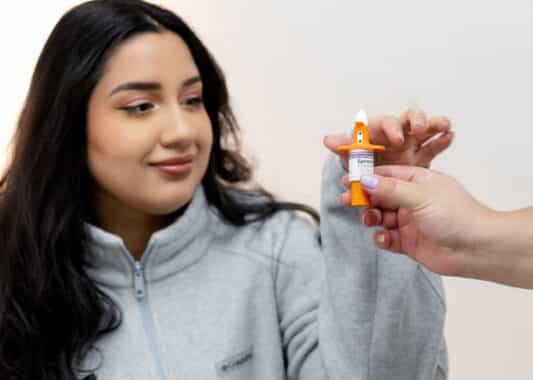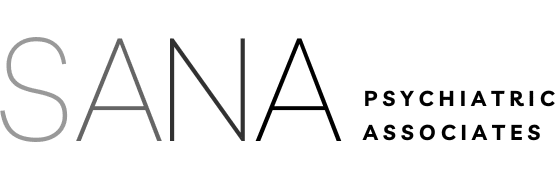Personalized Depression
Treatment in Frisco
Finding Hope and Healing
Depression can cast a shadow on even the brightest moments of life. We understand the weight of this condition and the impact it can have on individuals and their loved ones.
By shedding light on the definition of depression, its underlying causes, and the range of evidence-based treatment options available, we hope to empower you on your journey to recovery.
At our practice, we believe in providing valuable information and support to help individuals navigate through the challenges of depression. Whether you’re seeking answers for yourself or supporting a loved one, we’re here to provide clarity and guidance on the path to healing.
Depression is a common and serious mental health disorder characterized by persistent feelings of sadness, emptiness, or hopelessness. It goes beyond temporary feelings of unhappiness that everyone experiences from time to time. Individuals with depression often find it challenging to enjoy activities they once found pleasurable and may have difficulty functioning in their daily lives.
Depression is more than just a mood disorder. It affects various aspects of a person’s life, including their thoughts, emotions, behavior, and physical well-being. It can impact appetite, sleep patterns, energy levels, concentration, and self-esteem. In some cases, depression can lead to thoughts of self-harm or suicide.
It’s important to note that depression is a highly individualized experience, and symptoms may vary from person to person. Some individuals may experience primarily emotional symptoms, such as persistent sadness and loss of interest, while others may also have physical symptoms, such as changes in appetite and sleep patterns.
Depression can occur as a single episode or as recurring episodes throughout a person’s life. It can range in severity, from mild to moderate to severe. Prompt recognition, diagnosis, and appropriate treatment are crucial for managing depression effectively and improving quality of life.
It is important to remember that depression is a treatable condition, and with the right support and intervention, individuals can experience relief from their symptoms and regain a sense of well-being. Seeking help from a qualified mental health professional is essential for accurate diagnosis and developing an individualized treatment plan.
Please click on the Request Appointment button to get started filling out a quick secure form online. Once we receive the form we will contact you as soon as possible. Our staff is also available to help you anytime by calling (214) 705-2246
Individualized Depression Treatment

Evaluation and Diagnosis
A comprehensive assessment by our mental health professionals helps us understand the severity and type of depression. This includes identifying any co-occurring conditions and determining the specific type of depression to create a personalized diagnosis.
Customized Treatment Approach
At SANA, we develop individualized treatment plans tailored to each patient's specific needs and goals. This often involves a combination of medication management and therapeutic interventions based on the severity of symptoms and personal preferences.
Continuous Monitoring & Support
Regular follow-ups with healthcare providers at SANA ensure progress is monitored, side effects are managed, and treatment plans are adjusted as needed.Please note that the information provided on this webpage is intended for educational purposes and is not a substitute for professional diagnosis or treatment. We encourage you to consult with a qualified mental health professional to receive personalized care.
What are the Symptoms of Depression?
Symptoms of depression can vary from person to person, and the severity and duration of symptoms may also differ. It’s important to note that experiencing a few of these symptoms occasionally does not necessarily indicate depression, but when several symptoms persist for an extended period and significantly impact daily life, it may be a sign of depression. Here are common symptoms associated with depression:
Persistent Sadness
Feeling sad, empty, or down most of the day, nearly every day, often accompanied by hopelessness or despair.
Anhedonia
Losing interest or pleasure in activities once enjoyed, including hobbies, socializing, or relationships.
Restlessness/Slowness
Restlessness, irritability, or agitation, or conversely, slowed movements, speech, or cognitive processing.
Lack of Energy
Feeling persistently tired, lacking energy, having trouble falling asleep, staying asleep, or experiencing excessive sleepiness (hypersomnia), including early morning awakening.
Difficulty Concentrating
Difficulty concentrating, making decisions, or having memory problems, impacting work, school, or other daily tasks.
Significant Changes
Experiencing significant weight loss or gain, or a change in appetite, leading to decreased or increased food intake.
Negative Self-View
Experiencing feelings of worthlessness, excessive or inappropriate guilt, or self-blame without rational basis.
Suicidal Ideation
Persistent thoughts about death, dying, or suicidal thoughts, requiring immediate help if experienced.
Bodily Discomfort
Physical symptoms such as headaches, digestive issues, chronic pain, or unexplained aches and pains.
Request an Appointment
For patients seeking depression treatment in Frisco, our team provides comprehensive psychiatric care tailored to your needs.

